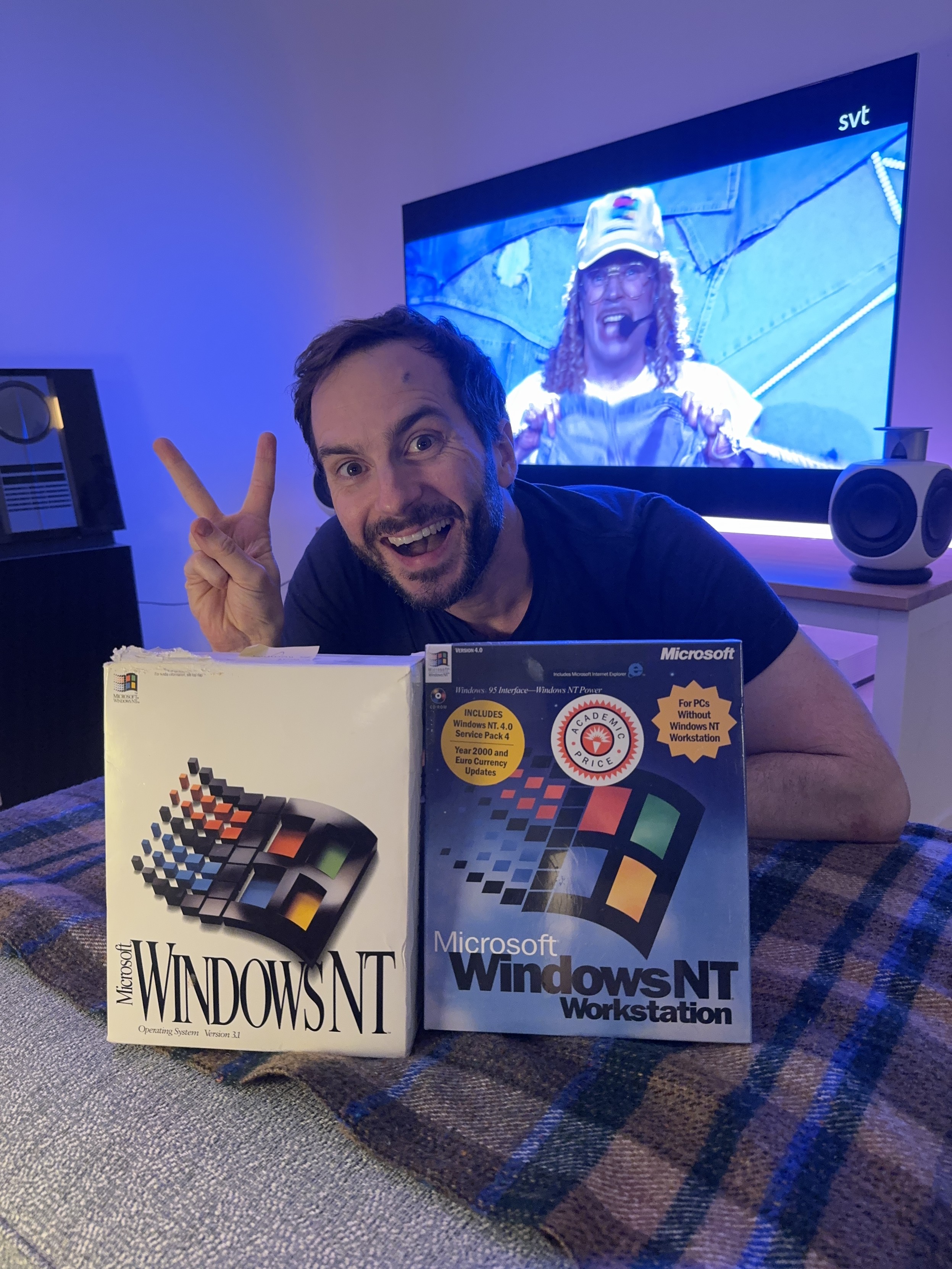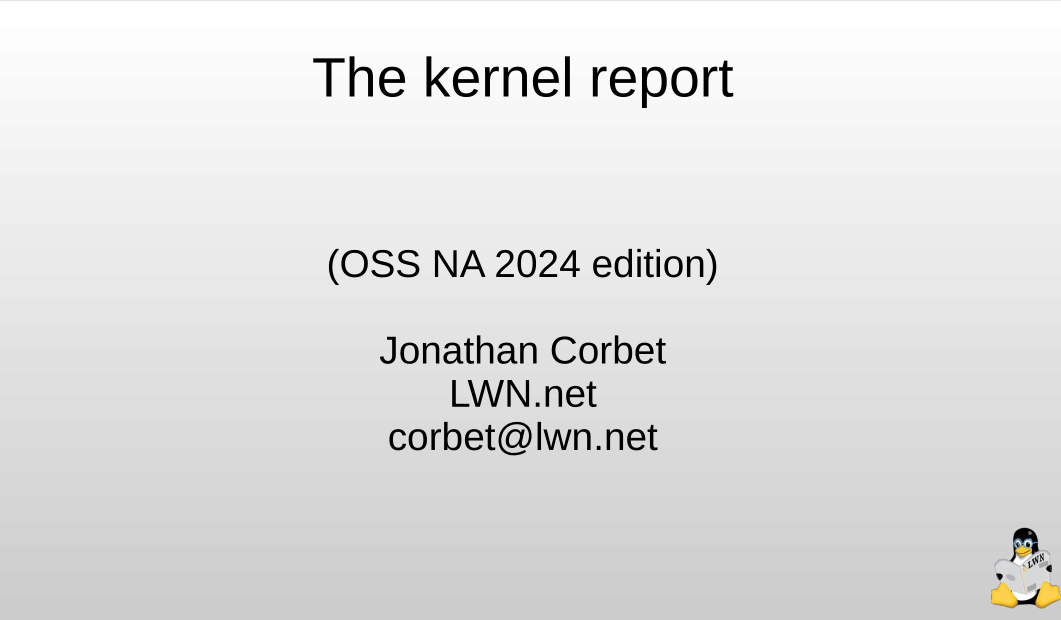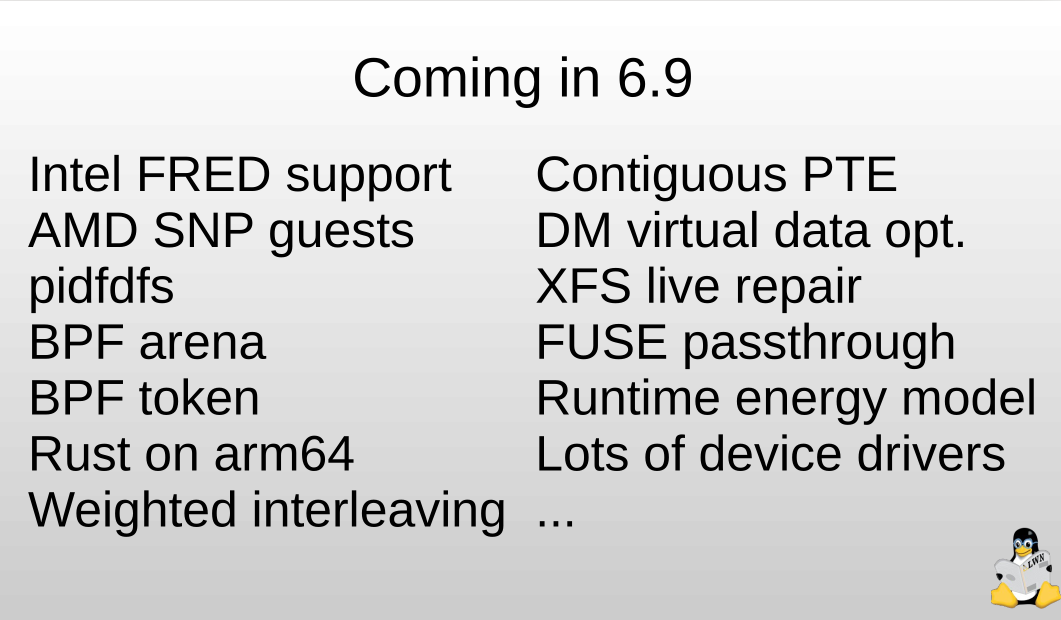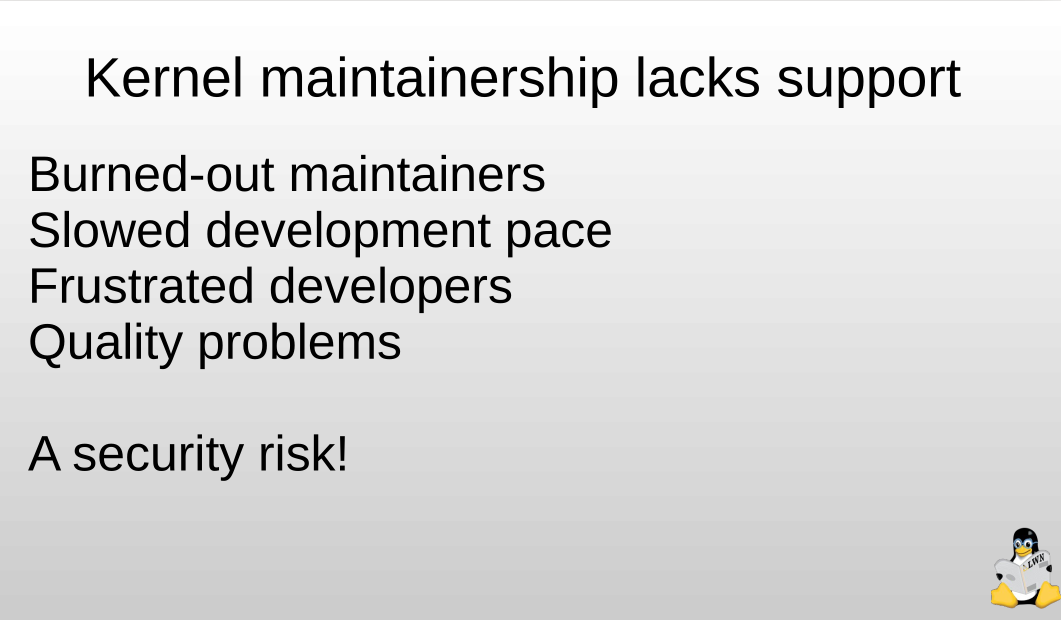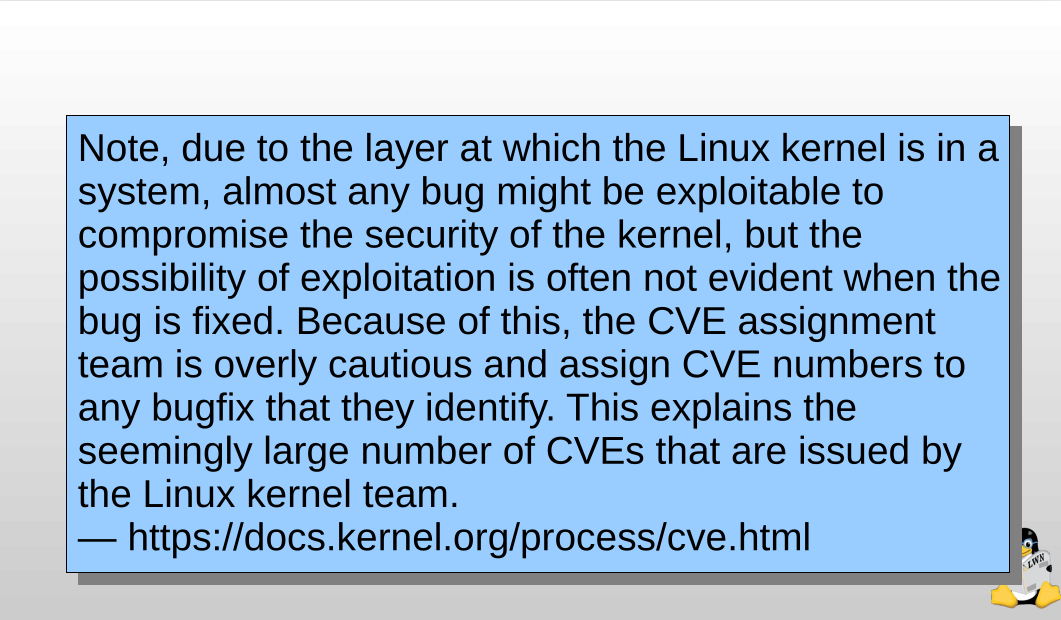Posts
4983Following
329Followers
494OpenPGP: 3AB05486C7752FE1
Lars Wirzenius
liw@toot.liw.fiIn colloquial computing Finnish the work for a cache is "kakku", because it's similar in pronunciation. Kakku means "cake". Thus, in Finnish people ask each other how much cake their CPU has.
Language is funny.
Jarkko Sakkinen
jarkkoMike Roach
mroach@mas.toWindows NT guy here supporting Windows95Man in #eurovision #esc2024
Andy Piper
andypiper@macaw.socialCo-authored an update from the @MastodonEngineering team with my friend @renchap - a sneak peek at what is coming in 4.3 (and looking ahead from there). We'll aim to make these updates a regular feature for the blog. Let us know what you think! #MastodonAPI #SpreadMastodon https://blog.joinmastodon.org/2024/05/trunk-tidbits-april-2024/
Jarkko Sakkinen
jarkkoJarkko Sakkinen
jarkkoJarkko Sakkinen
jarkkoE.g. I think I continue to build my career without LinkedIn, and find the jobs that fit me better through traditional methods of job finding (talking to friends, getting contacted by friend, sending queries and the usual). It is time to go #offtheradar :-)
Thorsten Leemhuis (acct. 1/4)
kernellogger@fosstodon.orgThe Kernel Report - Jonathan Corbet (@corbet), @LWN
The recording of this recent talk is now available on the #ossna2024 schedule page: https://ossna2024.sched.com/event/1aBNs/the-kernel-report-jonathan-corbet-lwnnet
Slides can be found here: https://static.lwn.net/talks/2024/kr-ossna.pdf
Direct link to the recording: https://www.youtube.com/watch?v=DAqjl_x4hZc
Jarkko Sakkinen
jarkkoEDIT: Oops, meant to write U-mode, S-mode is one that exists when there is an MMU :-)
Jarkko Sakkinen
jarkkoJarkko Sakkinen
jarkkoi'm just used to specs where opcode does one and only one thing :-)
Jarkko Sakkinen
jarkkoJarkko Sakkinen
jarkkoi was not in the UI layer. i was in the team doing audio subsystem, which contained resource manager, DSP codecs, audio policy etc. e.g. setting up the correct codecs, managing memory for audio, opening correct streams depending on phone state (like incoming call when you have video playback ongoing).
i also learned basics of ARM CPU's at the time, which is obviously still useful knowledge, JTAG debugging with Lauterbach TRACE32 and stuff like that. so even tho symbian is a relic, all the skills are still useful and can be applied :-) that way i got into middleware and operating systems.
when i started in 2003 symbian phones were larger and had two ARM CPU's separated by a physical bus: the first was for the phone OS and second one was for the application OS (symbian). when series 60 3.0 came along around 2004 the hardware architecture moved into one CPU model and to a real-time kernel called EKA2, which hosted the whole symbian in one of its threads.
One thing that was tedious was the edit-compile-run cycle. If I had to fix a bug, it took about 45-60 minutes to run it on a device, as both compilation and flashing took a while.
Doing e.g. Linux kernel is not that hard if you've worked in any possible operating systems before because in the end it is all about understanding hardware and the domain where you are working and the source code's layout is just like a different legislation and policies in a foreign country.

